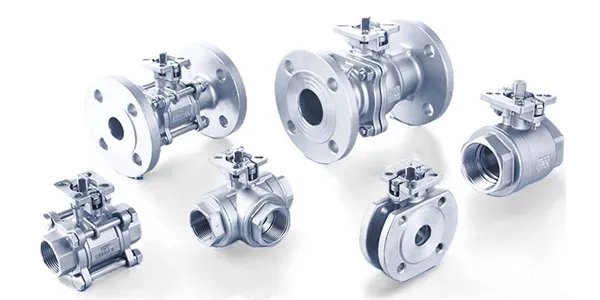Ball valves are commonly used in various industries and applications for their reliability and ease of use. However, like any mechanical device, they are not without their limitations. In this article, we will explore the question: Can a ball valve get clogged? We will delve into the functionality of ball valves, common causes of clogging, and their limitations in different scenarios.
Understanding Ball Valves
Ball valves are quarter-turn valves that use a hollow, perforated, and pivoting ball to control the flow of liquids. They are popular due to their durability, excellent sealing properties, and ability to regulate high-pressure systems. Ball valves are found in industrial processes, water systems, oil and gas pipelines, and even household plumbing.

Mechanism of Action
The mechanism of a ball valve is simple yet effective. When the handle is turned perpendicular to the flow, the ball rotates to block the flow completely. Conversely, when the handle aligns with the flow, the ball allows unrestricted passage of fluids. This on/off control mechanism makes ball valves ideal for quick shut-off applications.
Can a Ball Valve Get Clogged?
Yes, ball valves can indeed get clogged under certain circumstances. While they are less prone to clogging compared to other types of valves like gate valves, several factors can contribute to blockages in ball valves.
Common Causes of Clogging
Sediment Buildup: Over time, sediments present in the fluid can accumulate inside the valve, obstructing the flow.
Foreign Objects: Debris, rust particles, or small objects carried by the fluid can lodge themselves between the ball and the valve body, impeding movement.
Improper Installation: Incorrect installation or misalignment of the ball valve can cause irregular flow patterns, leading to potential clogs.
Corrosion: In corrosive environments, the ball and other components of the valve can degrade, creating rough surfaces that attract debris and impede movement.
Limitations of Ball Valves
While ball valves offer numerous advantages, they also have limitations that users should be aware of.
Limited Control Precision
Unlike globe valves or needle valves, which offer precise flow control, ball valves provide limited control over flow rate. They are primarily designed for full-flow or shut-off applications and may not be suitable for situations requiring fine adjustments.
Pressure Drop
Ball valves can cause a significant pressure drop across the valve, especially in partially open positions. This can impact system performance and efficiency, particularly in high-pressure applications.
Not Suitable for Slurries
In applications involving slurries or fluids containing solid particles, ball valves may not be the best choice. The presence of solids can increase the likelihood of clogging and accelerate wear on the valve components.
Conclusion
In conclusion, while ball valves are robust and versatile devices, they are not immune to clogging. Understanding the factors that contribute to clogging and the limitations of ball valves is crucial for ensuring reliable operation and minimizing downtime in industrial processes and fluid systems.


Comments
Please Join Us to post.
0